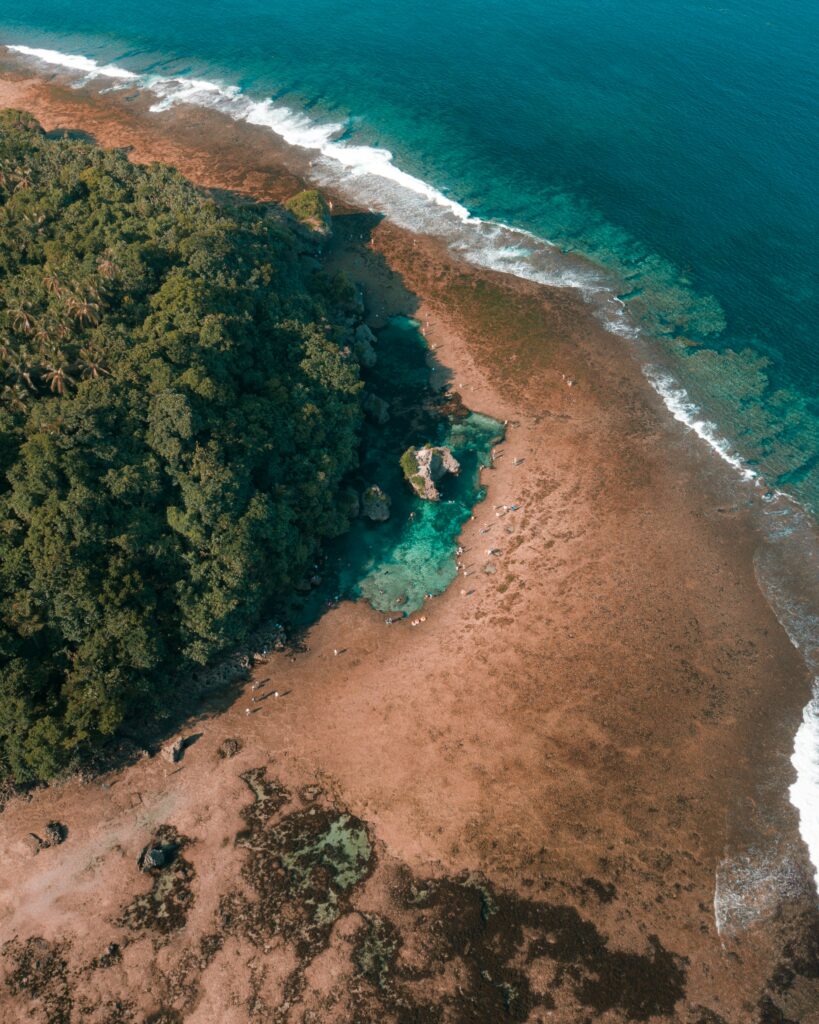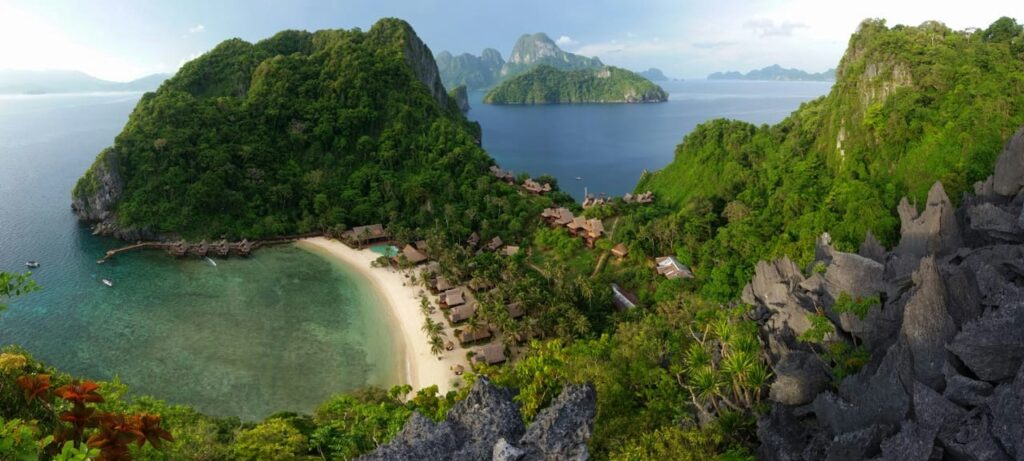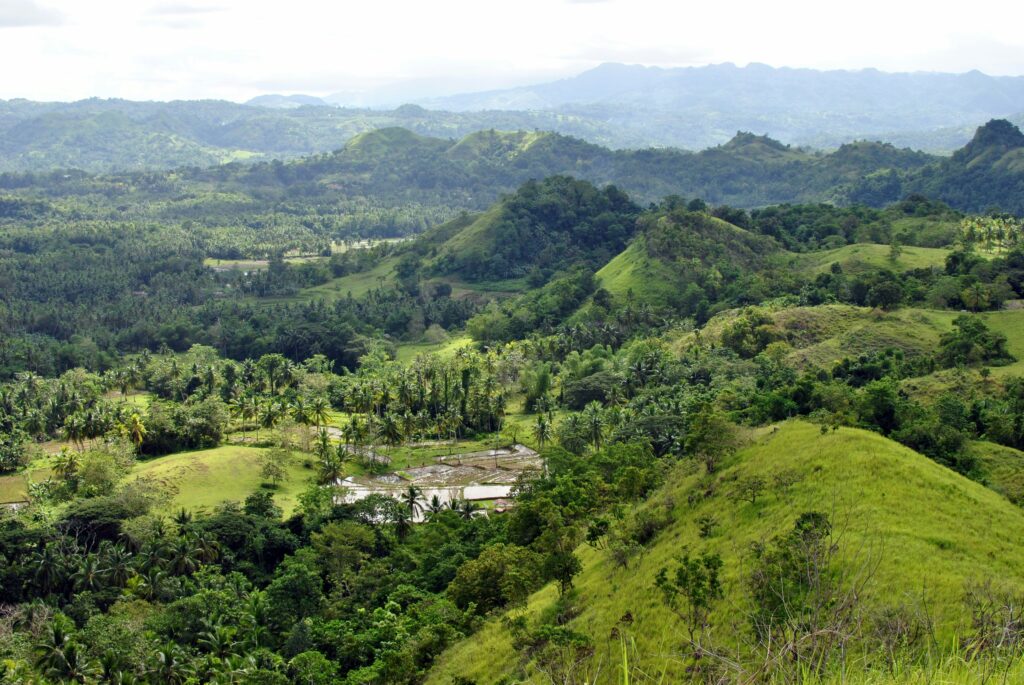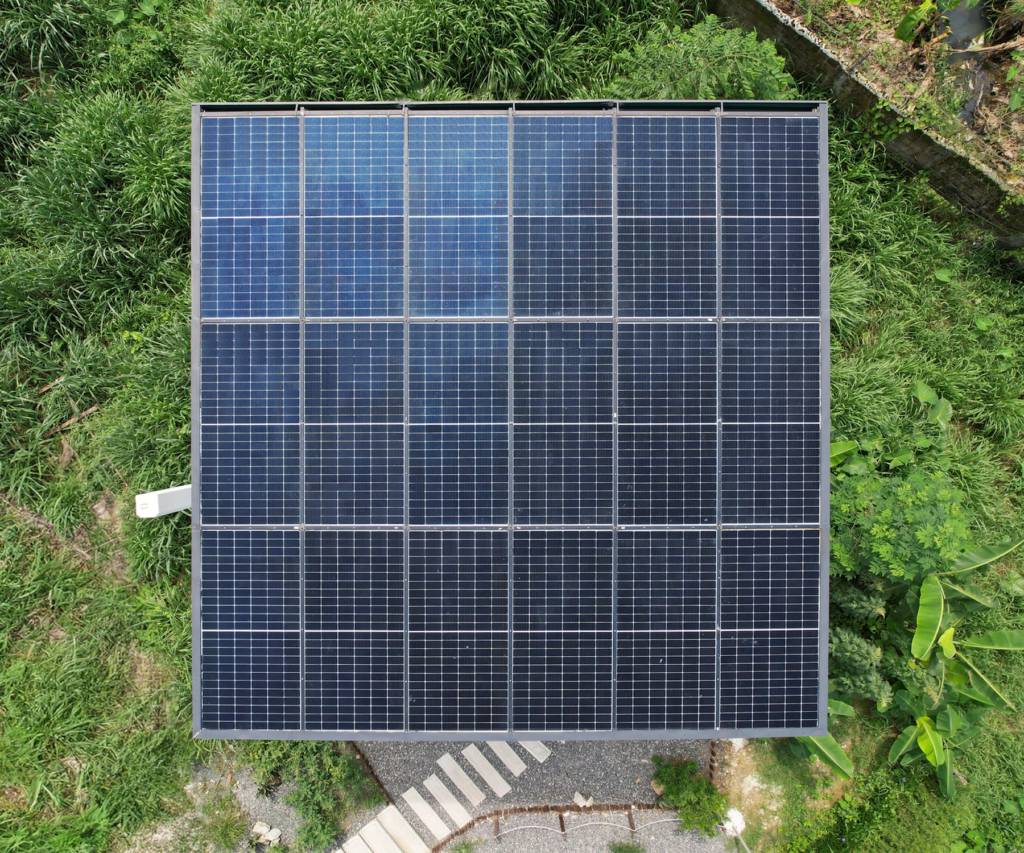Discover the benefits of off-grid living in the Philippines for remote workers. Learn how sustainability, self-sufficiency, and nature come together for a peaceful, eco-friendly lifestyle.
Off-grid living, once seen as a lifestyle reserved for a few adventurous spirits, has gained widespread appeal among remote workers and digital nomads seeking a blend of sustainability, independence, and tranquility. This lifestyle choice, characterized by self-sufficient energy systems and a reduced reliance on public utilities, aligns perfectly with the flexibility that remote work provides.
The Philippines, with its lush landscapes, tropical climate, and rich biodiversity, stands out as an ideal destination for those looking to embrace off-grid living. Boasting affordable land prices, abundant natural resources, and a welcoming culture, the country presents a unique opportunity to combine professional work-from-anywhere ambitions with a sustainable and peaceful way of life. This blog post will explore the perks of off-grid living in the Philippines and why it’s becoming a popular choice for remote workers and digital nomads.

The Allure of Off-Grid Living
Off-grid living involves disconnecting from public utilities and relying on self-sustained systems for energy, water, and resources. This way of life offers a host of benefits, from reducing one’s carbon footprint to fostering a deeper connection with nature. For many, it provides an escape from the fast-paced demands of urban environments, offering a simpler, more fulfilling existence rooted in self-reliance and harmony with the surroundings.
The Perfect Philippine Locations for Off-Grid Living
The Philippines boasts a diverse array of locations that are perfect for off-grid living, each offering unique landscapes and opportunities for sustainable lifestyles. Whether nestled in the mountains, by the sea, or amidst verdant fields, these locations provide the ideal setting for remote workers and digital nomads seeking tranquility and autonomy.
Siargao

A surfer’s paradise with numerous eco-friendly options, Siargao boasts pristine beaches, crystal-clear waters, and a vibrant community of locals and expats. The island is also home to many sustainable initiatives, such as eco-friendly resorts and beach clean-up programs, making it an ideal destination for environmentally conscious individuals.
Palawan

Nature’s untouched beauty for solitude seekers, Palawan is a sparsely populated island with plenty of off-grid living options. From bamboo huts to treehouses, one can find unique and sustainable accommodations surrounded by lush forests, turquoise waters, and stunning limestone cliffs.
Bohol

Balancing local Filipino culture with sustainability, Bohol offers a slower pace of life amidst its lush landscapes and diverse wildlife. Off-grid living options here include homestays, farm stays, and eco-resorts that thrive on sustainable practices such as permaculture and organic farming.
These are just a few of the many ideal locations for off-grid living in the Philippines. With its tropical climate, stunning scenery, and warm hospitality, the country provides a perfect backdrop for those looking to disconnect from the frenetic pace of urban life and reconnect with nature.
Essential Infrastructure for Off-Grid Living
To live sustainably off the grid, it’s essential to secure reliable systems for water, energy, and food. These basic needs must be addressed to ensure long-term self-sufficiency.
Energy: Renewable energy sources, such as solar, wind, and hydro, are vital for powering off-grid homes. Solar panels are the most common and accessible, converting sunlight into electricity. Wind turbines and micro-hydro systems can complement solar energy, providing power in areas with consistent winds or flowing water.
Water: Freshwater sourcing can be challenging in off-grid living, but rainwater harvesting and filtration systems are crucial. Rainwater collection systems funnel water into storage tanks, while filtration ensures clean and safe drinking water.
Food: Growing your own food or sourcing from local farms is key to maintaining an off-grid lifestyle. Many off-grid communities practice permaculture and organic farming, cultivating sustainable food supplies while minimizing reliance on external resources.
Getting Started with Sustainable Living
Creating a self-sufficient lifestyle involves thoughtful planning and sustainable practices. Here are some green living practices that are easy to adopt:
Self-Sufficient Garden: Start by cultivating a garden that supports your food needs. Grow a mix of fruits, vegetables, and herbs suited to the local climate. Companion planting and crop rotation can enhance soil health and yield.
Local Sourcing: Minimize your environmental footprint by sourcing food and materials locally. Support nearby farmers and artisans to reduce transportation costs and ensure fresher, more sustainable options.
Sustainable Practices: Adopt eco-friendly practices like composting kitchen waste, using rainwater for irrigation, and reducing plastic use. These efforts will reduce your reliance on external resources and contribute to a more sustainable lifestyle.
The Remote Work Connection
Combining remote work with off-grid living offers unique advantages. It allows you to enjoy the tranquility of nature while maintaining a fulfilling career. The flexibility of remote work means you can choose locations that align with your lifestyle, offering a perfect balance between productivity and peace.
Technology and Remote Work: Advances in technology have made remote work more accessible, even in remote areas. Cloud services, video conferencing, and collaboration tools enable seamless communication and project management, regardless of your location. Laptops and mobile devices are crucial, but reliable energy systems are equally important to keep them powered.
Reliable Internet in Rural Areas: Finding dependable internet in off-grid locations can be a challenge, but there are solutions. Satellite internet, mobile hotspots, and long-range Wi-Fi systems can provide connectivity in remote settings. Choosing the right plan based on data needs and local infrastructure is key to ensuring a smooth remote work experience.
Environmental Benefits of Off-Grid Living
Off-grid living significantly reduces your environmental impact, aligning with sustainable practices and contributing to a healthier planet.
Reduced Carbon Footprint: By relying on renewable energy sources like solar and wind, off-grid living drastically cuts greenhouse gas emissions compared to traditional grid electricity. This reduction in energy consumption helps minimize your overall carbon footprint, supporting global efforts to combat climate change.
Positive Impact on Local Ecosystems: Off-grid living promotes harmony with nature by reducing reliance on industrial systems that harm ecosystems. Practices like organic farming, permaculture, and rainwater harvesting help preserve local biodiversity and protect natural resources, fostering healthier ecosystems.
Sustainable Tourism: As more people embrace eco-friendly living, off-grid communities contribute to the growth of eco-tourism. Travelers seek destinations that align with their values of environmental preservation, and off-grid locations, with their focus on sustainability, are becoming attractive alternatives to mass tourism hotspots. This type of tourism helps preserve local environments while benefiting local economies.
Challenges and Considerations of Off-Grid Living
While off-grid living offers numerous benefits, there are some challenges to consider before making the transition.
Connectivity: Access to reliable internet and communication can be limited in remote areas. This may impact remote work or staying connected with family and friends.
Supply Access: Off-grid living often means fewer options for accessing goods and services, from food to medical supplies. Remote areas may have limited shopping options, requiring careful planning and self-sufficiency.
Social Isolation: The peace of off-grid living can come with social isolation, particularly in rural areas where communities may be small and distant.
Practical Tips:
- Connectivity: Invest in reliable internet solutions like satellite or mobile hotspots. Establish a backup power source to keep devices charged during outages.
- Supply Access: Stock up on essential supplies and establish relationships with local farmers or suppliers. Consider growing your own food to reduce reliance on external sources.
- Social Isolation: Stay connected with digital communities and make efforts to engage with local neighbors. Visit nearby towns occasionally to maintain social connections and avoid feeling isolated.
Have an Eco-Friendly, Self-Sufficient Life Today
Off-grid living offers remote workers and digital nomads a unique opportunity to combine sustainability, independence, and tranquility. By embracing renewable energy, local sourcing, and self-sufficiency, you can create a fulfilling and eco-friendly lifestyle.
The Philippines, with its abundant natural resources and stunning landscapes, is an ideal destination for those looking to disconnect from the hustle of urban life. As we strive to create a more sustainable world, off-grid living in the Philippines exemplifies a harmonious balance between human needs and ecological preservation.
By adopting sustainable practices and innovative solutions, such as those pioneered by BillionBricks, we can build resilient communities that thrive in harmony with nature. To know more about our BillionBricks and our net-zero homes and communities, please email us at hello@billionbricks.org.
If you’re interested in learning about how to get the most out of net-zero living, make sure to check out another article that provides additional insights. Read: Challenges and Solutions of Net Zero Lifestyle.
References:
- BillionBricks. (2024a, July 12). How do we achieve sustainability in the Philippines? Simple answer: embrace a net-zero lifestyle – BillionBricks | Net-Zero Homes. BillionBricks | Net-Zero Homes –. https://billionbricks.org/blog/how-do-we-achieve-sustainability-in-the-philippines-simple-answer-embrace-a-net-zero-lifestyle/.
- BillionBricks. (2024b, July 12). Impacts of renewable resources on energy sustainability – BillionBricks | Net-Zero Homes. BillionBricks | Net-Zero Homes –. https://billionbricks.org/blog/impacts-of-renewable-resources-on-energy-sustainability/.
- Cannon, H. (2023, September 20). 5 Video conferencing best practices for remote workers. Neat. https://neat.no/resources/5-video-conferencing-best-practices-for-remote-workers/.
- Duckett, M. K. (n.d.). Be inspired by nature in Bohol, Philippines. Travel. https://www.nationalgeographic.com/travel/article/partner-content-be-inspired-by-nature-in-bohol-philippines.
- Econtainer Philippines. (2024, January 12). Composting 101: A Beginner’s Guide to Eco-Friendly waste Management at home. Econtainer Philippines. https://econtainer.ph/blogs/articles/composting-101-a-beginner-s-guide-to-eco-friendly-waste-management-at-home?srsltid=AfmBOopEPxoRFdN0rSPULjDlRMKwtnla4hQllirhuLp6-TBokvNotKfe.
- Rainwater Harvesting Systems Technology Review. (n.d.). Energy.gov. https://www.energy.gov/femp/rainwater-harvesting-systems-technology-review.
- Siargao – The Ultimate Guide with 9 best things to do – Sun Chasing Travelers. (2023, November 13). Sun Chasing Travelers. https://www.sunchasingtravelers.com/siargao-the-ultimate-guide/.
- Sustaining happiness: eco-friendly fun in the Philippines. (n.d.). Travel. https://www.nationalgeographic.com/travel/article/partner-content-sustaining-happiness-eco-friendly-fun-in-the-philippines.
- Taylo, A. S. (2024, July 11). Growing a sustainable vegetable garden in the Philippines – BillionBricks | Net-Zero Homes. BillionBricks | Net-Zero Homes –. https://billionbricks.org/blog/growing-sustainable-vegetable-garden-philippines/.
- WWF International. (n.d.). How to reduce your carbon footprint | WWF. WWF. https://explore.panda.org/climate/how-to-reduce-your-carbon-footprint.




